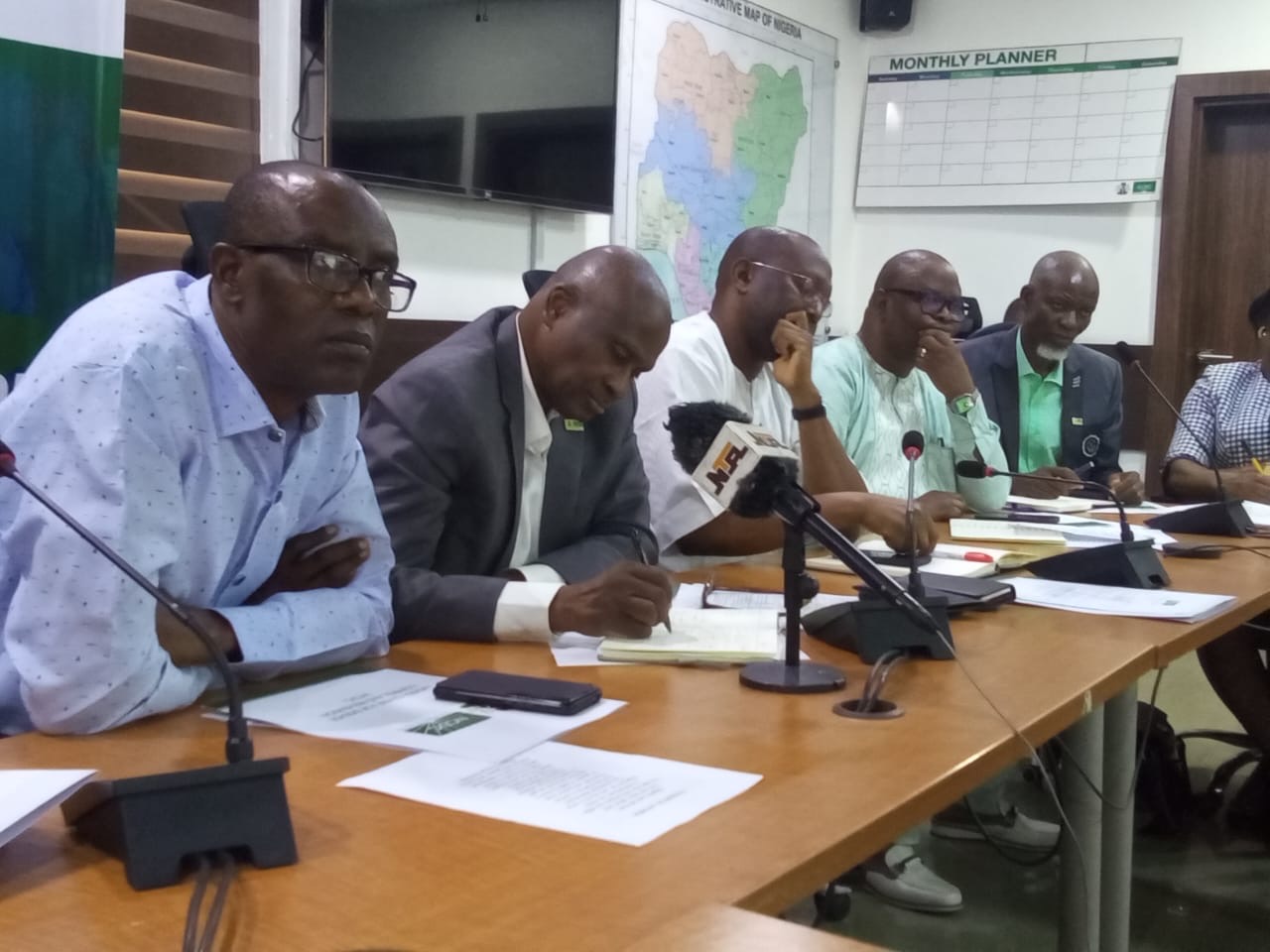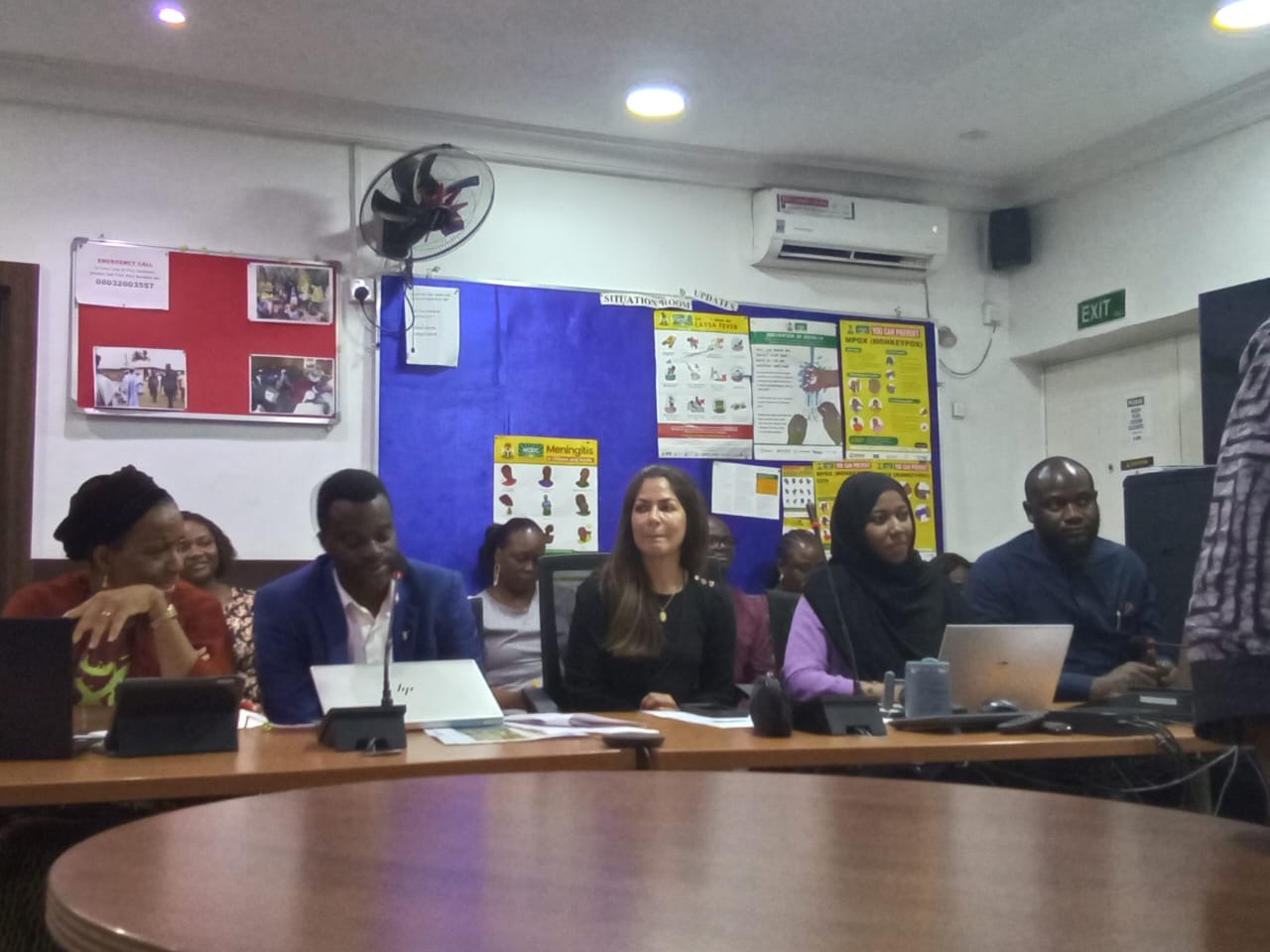
By Abdulrahman Aliagan
Nigeria’s journey towards establishing a robust disease control and prevention infrastructure can be traced back to the early 20th century, a time when the country was still under British colonial rule. As the colonial administration sought to maintain control and stability in the region, the need for effective disease management became increasingly apparent.
In the 1920s, the colonial government established the Federal Bureau of Health, which served as the foundation for future public health initiatives in Nigeria. This bureau was tasked with monitoring and responding to disease outbreaks, as well as implementing basic sanitation and hygiene measures across the country.

However, the true catalyst for the creation of the Nigeria Centre for Disease Control and Prevention (NCDC) came in the wake of the devastating Ebola outbreak that struck West Africa in 2014. The Ebola crisis exposed the weaknesses in Nigeria’s existing disease control infrastructure, highlighting the urgent need for a more robust and coordinated approach to public health emergencies.
The Birth of the NCDC
In the aftermath of the Ebola outbreak, the Nigerian government recognised the imperative to establish a dedicated institution that could lead the country’s efforts in disease surveillance, prevention, and control. This recognition led to the creation NCDC with the primary goal of protecting the health and well-being of all Nigerians.
The NCDC was envisioned as a central hub for disease-related data collection, analysis, and response coordination. It was tasked with strengthening early warning systems, improving disease outbreak investigation and management, and enhancing the country’s overall public health resilience.
The Centre’s Mandate and Aspirations
Since its inception, the NCDC has been working tirelessly to fulfill its mandate and transform the Nigerian health sector. Some of the key objectives and aspirations of the Centre include:
Enhancing disease surveillance and early warning systems: The NCDC aims to establish robust surveillance networks across the country, enabling the early detection and rapid response to disease outbreaks.
Improving outbreak investigation and control: The Centre focuses on developing expertise in outbreak investigation, employing evidence-based strategies to contain and mitigate the impact of diseases.
Strengthening laboratory capabilities: The NCDC seeks to upgrade the country’s laboratory infrastructure, ensuring the availability of reliable diagnostic capabilities for a wide range of infectious diseases.
Fostering collaboration and capacity building: The Centre works closely with various stakeholders, including government agencies, international organizations, and local communities, to enhance disease control and prevention efforts.
Promoting public health awareness and education: The NCDC recognizes the importance of public engagement and strives to raise awareness about disease prevention, hygiene, and healthy practices among the Nigerian populace.
As the Centre continues to evolve and expand its reach, it stands as a beacon of hope for the country’s public health landscape. By harnessing the lessons of the past and drawing upon the expertise of its dedicated professionals, the NCDC is well-positioned to safeguard the health and well-being of all Nigerians, ushering in a new era of disease prevention and control.
The Emergence of Dr. Jide Idris at NCDC
In the face of growing public health challenges in Nigeria, NCDC emerged as a critical institution at the forefront of disease surveillance, outbreak response, and health security. At the heart of the NCDC’s efforts is the leadership of Dr. Jide Idris, a distinguished public health expert who has played a pivotal role in shaping the organization’s capabilities and impact.
Dr. Idris’ journey to the NCDC began with a distinguished career in medicine and public health. After completing his medical education and training, he went on to specialize in epidemiology and public health, earning accolades for his work in tackling infectious diseases and promoting evidence-based policymaking. His expertise and commitment to public service soon caught the attention of the Nigerian government, leading to his appointment as the 3rd Director-General of the NCDC.
Under Dr. Idris’ leadership, the NCDC has undergone a remarkable transformation, evolving from a fledgling agency into a robust and well-equipped institution capable of responding to a wide range of public health emergencies. One of his earliest and most significant achievements was the establishment of the NCDC’s Incident Coordination Centre, a state-of-the-art facility that serves as the nerve center for coordinating disease outbreak response and information-sharing across the country.
Dr. Idris’ tenure has also been marked by a relentless focus on strengthening the NCDC’s technical and operational capacities. He has prioritized the recruitment and training of a highly skilled workforce, ensuring that the organization is equipped with the necessary expertise to tackle complex public health challenges.
In addition, he has forged strong partnerships with international organizations, research institutions, and public health agencies, enabling the NCDC to leverage global best practices and cutting-edge technologies in its operations.
Perhaps most notably, Dr. Idris’ leadership has been tested during major public health crises, such as the Ebola outbreak in 2014 and the COVID-19 pandemic. In these critical moments, his calm, decisive, and evidence-based approach has been instrumental in guiding the NCDC’s response, earning him widespread respect and recognition both within Nigeria and globally.
Through his unwavering commitment to public health, innovative thinking, and collaborative spirit, Dr. Jide Idris has firmly established the NCDC as a reliable and respected institution at the heart of Nigeria’s efforts to safeguard the health and wellbeing of its citizens. As the country continues to grapple with emerging public health threats, the steady leadership and vision of Dr. Idris will undoubtedly be crucial in navigating these challenges and securing a healthier future for all.
Strengthening Collaboration with Media for National Health Security
In a move to bolster national health security, the Centre recently held a meeting with media executives to discuss strengthening collaboration. The meeting was led by the Director-General of NCDC, who provided a comprehensive overview of the centre’soperations and priorities.
Established to protect the health of Nigerians, NCDC has played a vital role in managing disease outbreaks and ensuring the country’s overall public health security. During the meeting, Dr. Idris highlighted the historical background, vision, mission, and core mandate of the centre.
One of the key areas emphasized was the centre’s focus on epidemic-prone diseases, including infectious disease outbreaks from 2014 to 2024. Dr. Idris also delved into the crucial aspects of disease surveillance, epidemiology, and the public health laboratory network, as well as the centre’s health emergency preparedness and response efforts.
Recognizing the importance of research and workforce development, Dr. Idris presented a graphical analysis of the emergency and disaster risk calendar, underscoring NCDC’s commitment to strengthening its capabilities in these areas.
Collaborative efforts with the media were a significant part of the discussion. Dr. Idris highlighted the centre’s plans for health promotion and prevention, emphasizing the crucial role of key institutions and community structures. He also outlined NCDC’s priorities for media partnership, aiming to foster a mutually beneficial relationship.
The media executives in attendance expressed their appreciation for the NCDC’s initiative to engage with the press. Mr. Yusuf Alli, the Media Executive Coordinator from The Nation Newspaper, assured the DG of the media’s presence in the centre’s activities, pledging objectivity and balance in their reporting.
Mr. Adebayo Bodunrin of the African Independent Television (AIT) advised the NCDC to make the collaboration a sustainable one, recognizing the importance of continuous engagement. The Director of News at the News Agency of Nigeria also encouraged the DG to establish district offices to ensure that accurate and fact-checked information reaches the centre.
The meeting underscored the NCDC’s commitment to strengthening collaboration with the media towards attaining national health security. By fostering this partnership, the centreaims to enhance its ability to effectively communicate with the public, disseminate vital health information, and mobilize the necessary resources to safeguard the well-being of all Nigerians.









